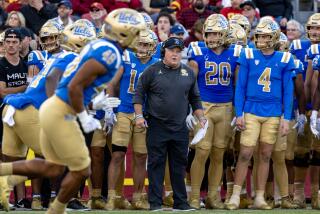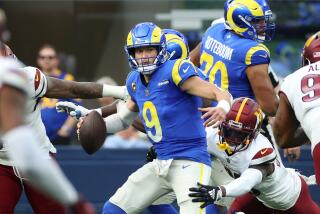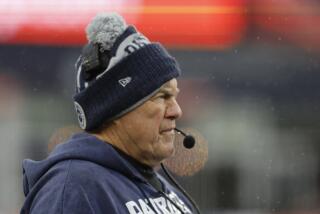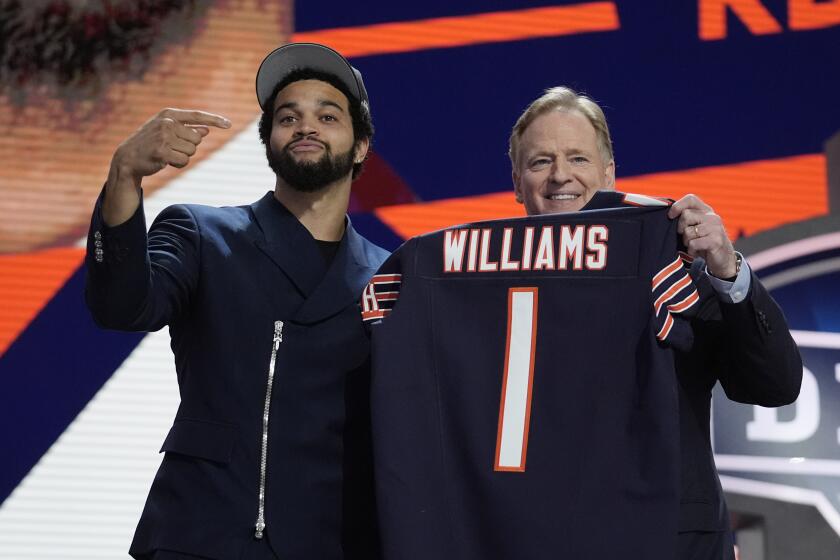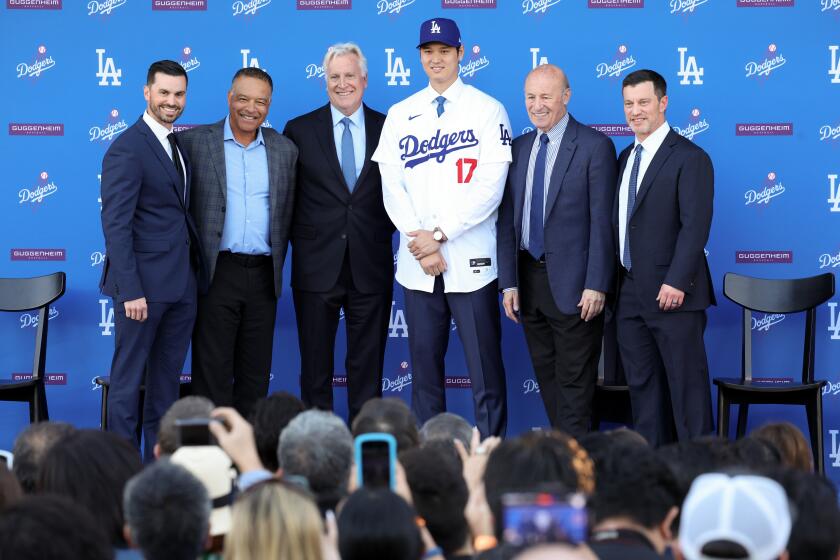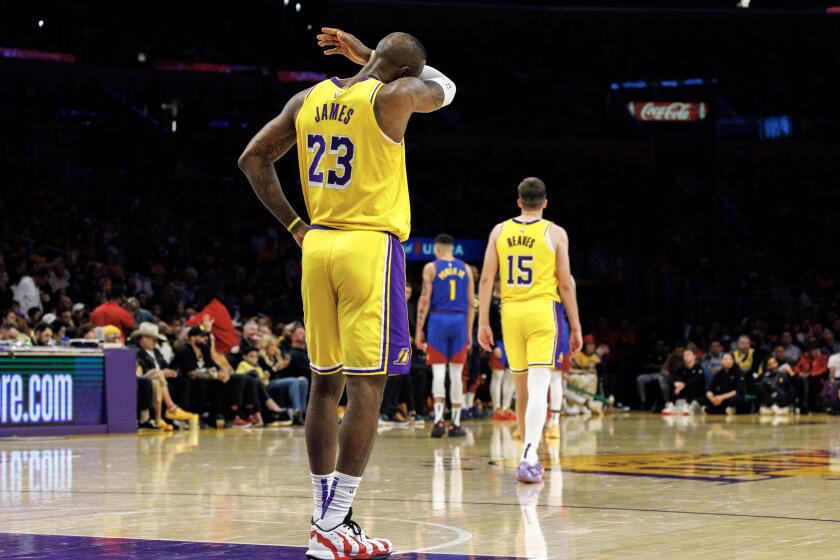Ask Sam Farmer: Why is the defense more tired than the offense?
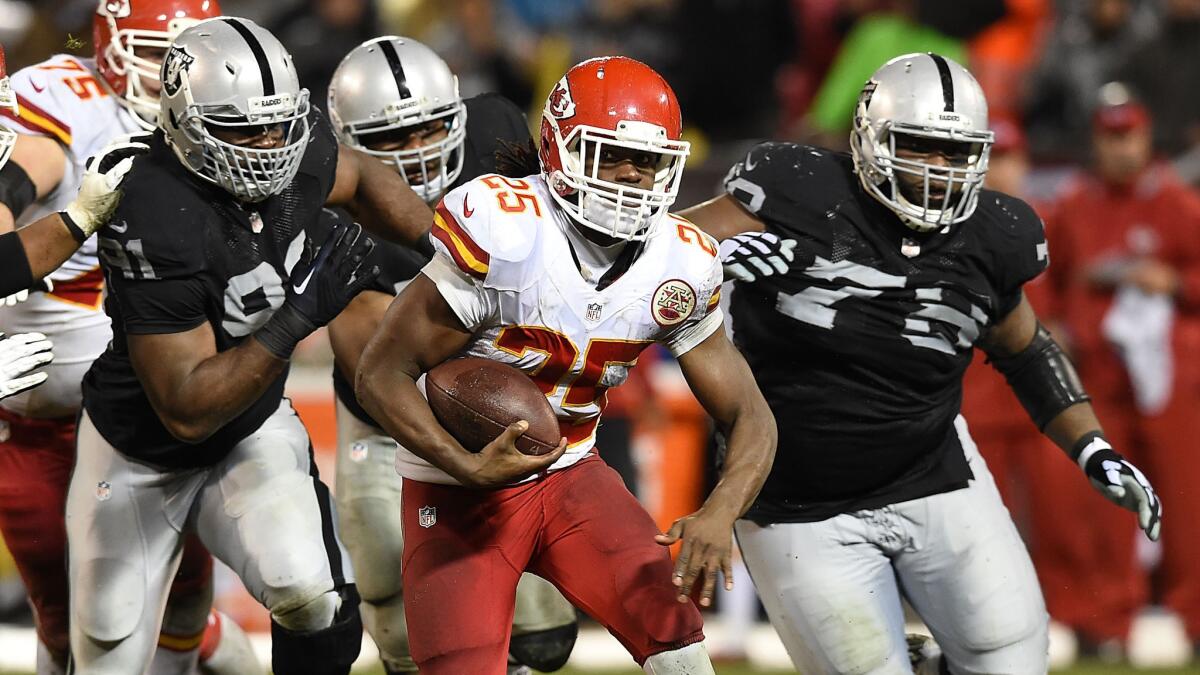
Have a question about the NFL? Ask Times NFL writer Sam Farmer, and he will answer as many as he can online and in the Sunday editions of the newspaper throughout the season. Email questions to: sam.farmer@latimes.com
Question: Why is it that when there is a long offensive drive the TV commentator says, “the defense has been out there a long time and is tired.” Hasn’t the offense been out there the same amount of time? Assuming that both sides have time to make substitutions. Why is the defense more tired?
Rich Luftig
Pomona
Farmer: Theoretically, an identical amount of time on the field should calculate into fatigue that’s pretty much the same. But here’s what former NFL coach Sam Wyche has to say about that: “The biggest factor is the offense knows the snap count. Therefore, the offense is at parade rest while the quarterback’s going through all of his calls and his dummy signals and all that. And the defense is burning up energy because they don’t know when the ball’s going to be snapped. They’ve got to be in position to do their job.
“Up until about the six seconds that the play is actually underway, the offense is resting a lot more than the defense is on the field. I would tell my offensive linemen when we were running the no-huddle, ‘You want to make sure that you’re in a legal formation and you’re still, giving the defense the idea that that ball could be snapped at any second.’ The way that you know defenders are burning up energy is you look down at their middle knuckles when they’re in a three-point stance. If their middle knuckles are white, they’re burning up energy by leaning on that arm. You want to make sure you keep their knuckles white, and if they’re not, you give them a little look like the ball’s about to be snapped, and you’ll get them to burn more energy.”
You could say, the defense is white-knuckling the snap.
===
Question: When an NFL head coach gets fired during the season and an assistant or one of the coordinators steps up to be the head coach for the remainder of the year, how do they compensate that new head coach? Do they negotiate a head-coach-type salary at that point or does the new coach finish out the year at his originally negotiated contract amount?
Jeff Harris
Somis
Farmer: No two situations are the same, but what typically happens is the interim coach will get a pay bump as a nod to his new enhanced responsibilities. The raise in most cases is determined by a number of factors, among them how many games remain, whether the interim coach is a candidate to be the permanent hire, and whether it’s a coordinator or a position coach who has been promoted. (Generally speaking, coordinators make in the neighborhood of $1 million per year, and position coaches make about half that.) But it’s logical to surmise that then-offensive coordinator Bruce Arians, who took the wheel of the Colts for 12 games in 2012, would get a bigger increase than then-running backs coach Eric Studesville, when he replaced the fired Josh McDaniels in Denver for four games in 2010.
More to Read
Get our high school sports newsletter
Prep Rally is devoted to the SoCal high school sports experience, bringing you scores, stories and a behind-the-scenes look at what makes prep sports so popular.
You may occasionally receive promotional content from the Los Angeles Times.

